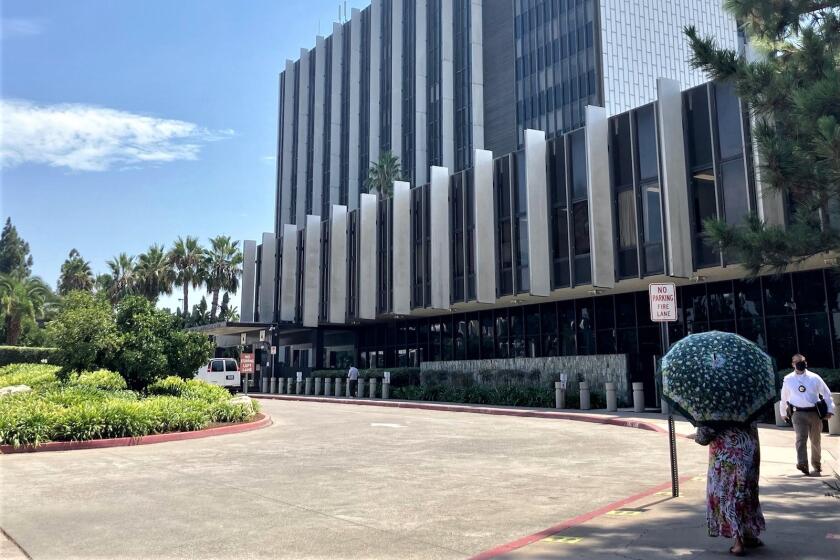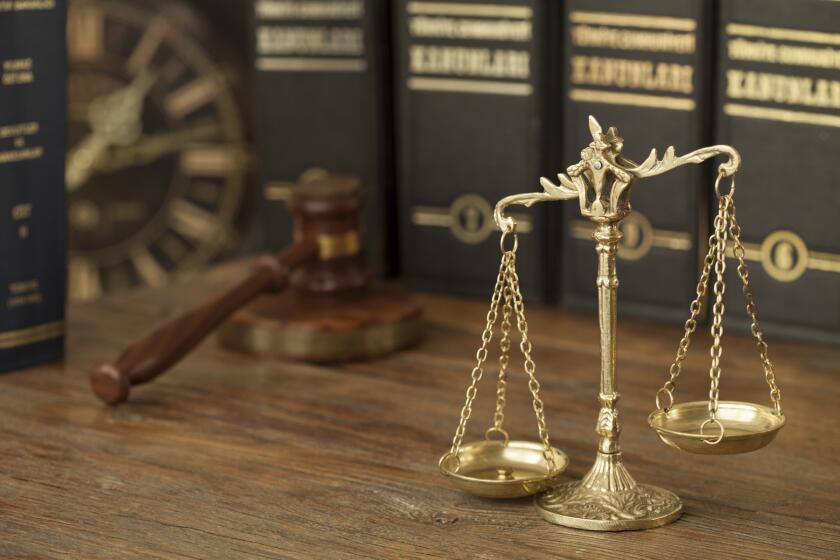Classically Trained: Pianist gives stellar performance
- Share via
It was great to be indoors again.
After months in the summer heat — which got dangerously excessive at times for this orchestra to play in — at parks and the Verizon Wireless Amphitheater, the Pacific Symphony returned to its Costa Mesa home base Sept. 20.
Within the Renée and Henry Segerstrom Concert Hall, Carl St.Clair led the orchestra’s opening downbeat to herald in its 34th season. Pianist André Watts was the featured guest, and it was a good turnout for a Thursday on the three-night series.
But before Watts stole the show came two Strausses to provide both a jovial and serious mood.
Johann Strauss Jr.’s overture from “Die Fledermaus” and Richard Strauss’ suite from “Der Rosenkavalier” were varied choices to play for the first half. The latter was more listener-friendly even without its operatic accompaniment. The second was less so.
“Die Fledermaus” waltzed along nicely, the orchestra bowing, buzzing and blowing with a supple bounce. A good start.
“Der Rosenkavalier” was expressively executed, though, as it seems to be the case with this orchestra more often than not, its pianissimo playing left much to be desired. But at the same time, there was plenty to savor: strong middle dynamics and fortes that often were brilliant.
After the intermission, in came Watts and his Steinway & Sons.
Young virtuosos may be flashy and brilliant, but there’s something to be said about the veterans: less blaze, more substance. There is no substitute for experience, as they say.
Watts has plenty of it, being an acclaimed musician since his teenage years in the 1960s.
He brought those polished skills to Costa Mesa in grand style with the four movements of Brahms’ Piano Concerto No. 2.
Most things Brahms rarely do much for me. Call me an outlier on the graphic displaying his legions of modern-day fans.
This piano concerto, though, is an exception to my otherwise uninterested attitude. And I, like most everyone else, was anything but bored when hearing Watts. He had us transfixed.
As it were, the symphony also sounded best as the important accompaniment to Watts’ playing. As soloist and orchestra, the two gelled. Dynamics, balance, the musical dance of give and take — the product was as solid as I’ve heard in the hall in awhile.
The strings, especially, were stellar all night long.
The Andante movement had lovely passages from Watts — and from Timothy Landauer on cello and Jessica Pearlman on oboe — with the orchestra accompanying in admirable pianissimo fashion.
By the fourth movement, Watts, St.Clair and the orchestra had summoned the gods of angelic and elegant playing for a satisfying performance. They had earned their enthusiastic applause.
*
Plácido Domingo to sing at Segerstrom
The LA Opera is coming south for a single performance of Verdi’s “The Two Foscari” on Monday. Conductor James Conlon leads the 7:30 p.m. show at the Renée and Henry Segerstrom Concert Hall, 600 Town Center Drive, Costa Mesa.
The fabled tenor Plácido Domingo — who sang at the hall’s opening in 2006 — is among the production comprised of world-class talent.
The LA Opera’s website is using a clever tagline to describe this opera’s plot: “The innocent. The guilty. The doomed. Venetian politics knows no difference.” I like it.
Tickets start at $40 and are available at the box office, https://www.scfta.org or (714) 556-2787.
BRADLEY ZINT is a classically trained musician and a copy editor for the Daily Pilot. Email him story ideas at bradley.zint@latimes.com or follow him on Twitter @BradleyZint.
All the latest on Orange County from Orange County.
Get our free TimesOC newsletter.
You may occasionally receive promotional content from the Daily Pilot.




